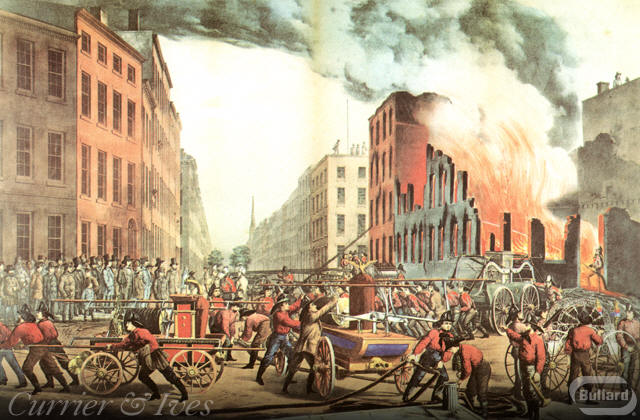
PMT 712 Theory and Design of Automated Fire Systems - Internet

|
|
The student at the end of this course will:
Egress Design Solutions, Jeffrey S. Tubbs & Brian J. Meacham, 2007, Wiley, Hoboken , New Jersey; ISBN: 978-0-0471-71956-4
All course material will be available at the Blackboard Course Site
QUIZZES 20%
HOMEWORK 25%
DISCUSSION BOARD 25%
TERM PAPER PROSPECTUS 5%
TERM PAPER 25%
Must be type written
It will contain the following:
Name of person submitting the prospectus
Subject of the term paper
Brief outline of the paper
List of proposed references
For an example of what it should look like go to Prospectus Example
The requirements for the term paper are as follows:
Body of the paper will be twelve [12] pages, double-spaced and type written
Font size is no larger than 12 point and margins to be 1 inch minimum
The bibliographic (reference) list will follow the American Psychological Association (APA) format for references and citations. {See
Library Reference Desk for Additional Information on APA Format}
The paper will have a minimum of three (3) references in the bibliography.
References may include: text books, magazine articles, newspaper articles, reference books (encyclopedia, dictionary) and electronic media (Internet material)
Wikipedia may be used for reference only, not as a citation!
References must include at least two (2) references other than the two (2) texts books required for the course.
Grading will be based on content, grammar, proper use of citations and references using A.P.A. format.
For an example of what a term paper should look like to receive an "A" go to
Term Paper ExampleSelect from one of the following topics:
Select a major fire during the past century and research how building construction and the fire and building codes had an impact on the fire. Also provide positive changes came about as a result of the fire in the areas of code improvements, changes in use of interior and exterior construction materials, and life safety
OTHER TOPICS MAY BE CHOSEN WITH APPROVAL OF THE INSTRUCTOR
At the end of each section there will be a quiz. The quizzes will have approximately 5 questions in a essay format. The student will have approximately 60 minutes to complete each quiz. All quizzes will be presented online at the course web site.
DISCUSSION QUESTIONS AND WRITTEN ASSIGNMENTS
For each week the student will be required to respond to a discussion question(s) presented by the instructor regarding the readings from that course section or related current events. Access to pertinent information regarding a current event will be provided by the instructor..
For each week the student will be required to respond to questions posed by the instructor based on the readings for that particular section. The response to these questions will be typed written and in one of the following formats - MS Word [.doc]; MS Word - Rich Text Format [ .rtf]; WordPerfect [.wpd]. For any students using the program MS Works when you save your assignment, save them as one of the above formats, NOT AS A WORKS FORMAT [.WPS]. When submitting written assignments do so as an e-mail attachment.
Attendance is based on your commitment to the course. I will track your attendance by watching the number of times you visit the site over the duration of the course.
Plagiarism is the representation of someone else's ideas, words, or artistic, scientific, or technical work as one's own creation. Using the ideas or work of another is permissible only when the original author is identified. Paraphrasing and summarizing, as well as direct quotations, require citations to the original source.
Plagiarism may be intentional or unintentional. Lack of dishonest intent does not necessarily absolve a student of responsibility for plagiarism. It is the student's responsibility to recognize the difference between statements that are common knowledge (which do not require documentation) and restatements of the ideas of others. Paraphrase and summary are acceptable forms of restatement, as long as the source is cited. Direct quotation can only be used, if, in addition to citing the source, the quoted material is placed within quotation marks or in blocked format in accordance with the appropriate style manual. All paraphrases, summaries, and quotations must be immediately followed by the appropriate citation and must be clearly distinguished from one's own creation. Students who are unsure how and when to provide documentation are advised to consult their instructors. The Library has free guides to help students with documentation.
Students are prohibited from using books, notes, and other reference materials during examinations except as specifically authorized by the instructor. Students may not copy other students' examination papers, have others take examinations for them, substitute examination booklets, submit papers written by others, or engage in other forms of academic dishonesty. An instructor who determines that such violation has occurred may follow the options stated below. Similarly, a student who has been penalized by an instructor has the same rights of appeal as in a situation involving an allegation of plagiarism.